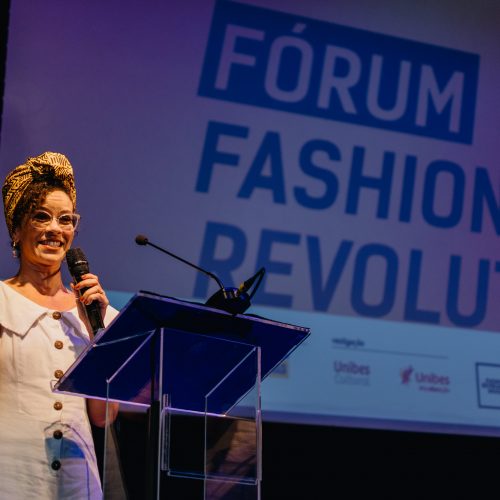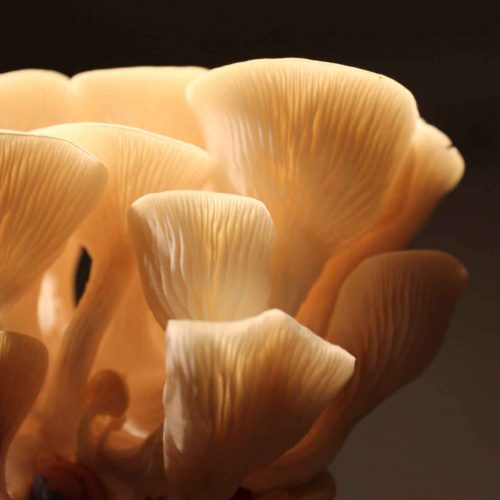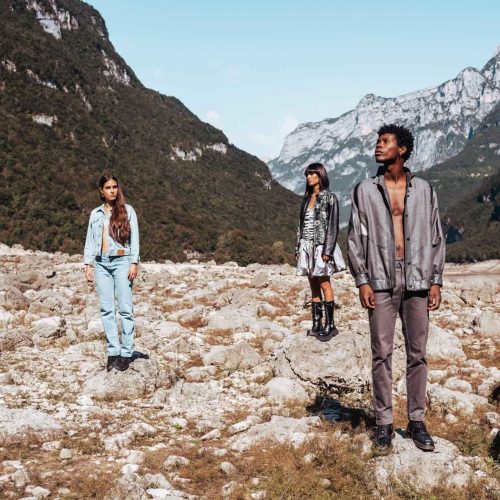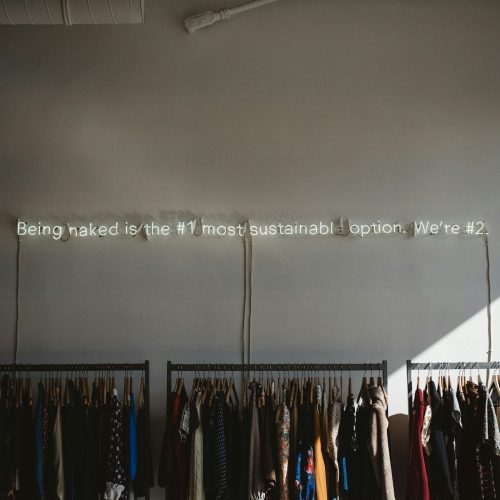Green Embassy, stimuling eco textile art
Sophistication, craftsmanship, opulent, luxury… Zuhal Kuvan-Mill is one of those stimuling designers creating prints with steam cooking vegetables to provoque green illusions. Founder of Eco Fashion Week Australia, this eco fashion designer and visual artist of the organic Haute Couture fashion label Green Embassy offers a serene vibrancy through each of the garments she creates. It is imposible to understand the beauty of eco-fashion without getting to know the way she visualizes this art.
Zuhal Kuvan-Mill is a visual artist with background in veterinary medicine, conservation and enviromental biology education. After completing her Art Degree in Visual Art in 2010, she focused on Textile Art and started creating her certified organic functional textile art with her own atelier: Atelier Zuhal
As a Veterinarian and teacher of Conservation, Zuhal Kuvan-Mill has found her way also educating with textile art. She see fashion purely as an art form. To her , all artworks have a concept. When it comes to create her art, she still teaches visually care for the conservation of the environment. It is her concept, the lifestyle she adores.
This vibrant designer lives in her own organic alpaca farm with 50 alpacas, ducks, chickens, plus three dogs and two cats. There, we can also find her recent friend, a resque cocatoo- George ¡ The land around her farm is full of native species of trees and bush to provide reuge to local wildlife and birds. There, she has her own orchard and herbs garden too. It is all amazing there!
In her wardrobe we can find garments from other creative fashion Designers, all crazy believers of circular economy, green fashion and eco-friendly designs: Sylvia Calvo, Sharavan Kumar, Curtin Springs, Claudi and of course, her own label: Green Embassy. She also has great op-shop collections of pieces she loves dearly.
“I do not produce for shop rails in numerous numbers and sizes. Green Embassy pieces are art work and each one is an unique piece, takes a week to be done and life long to keep it for next generation”.
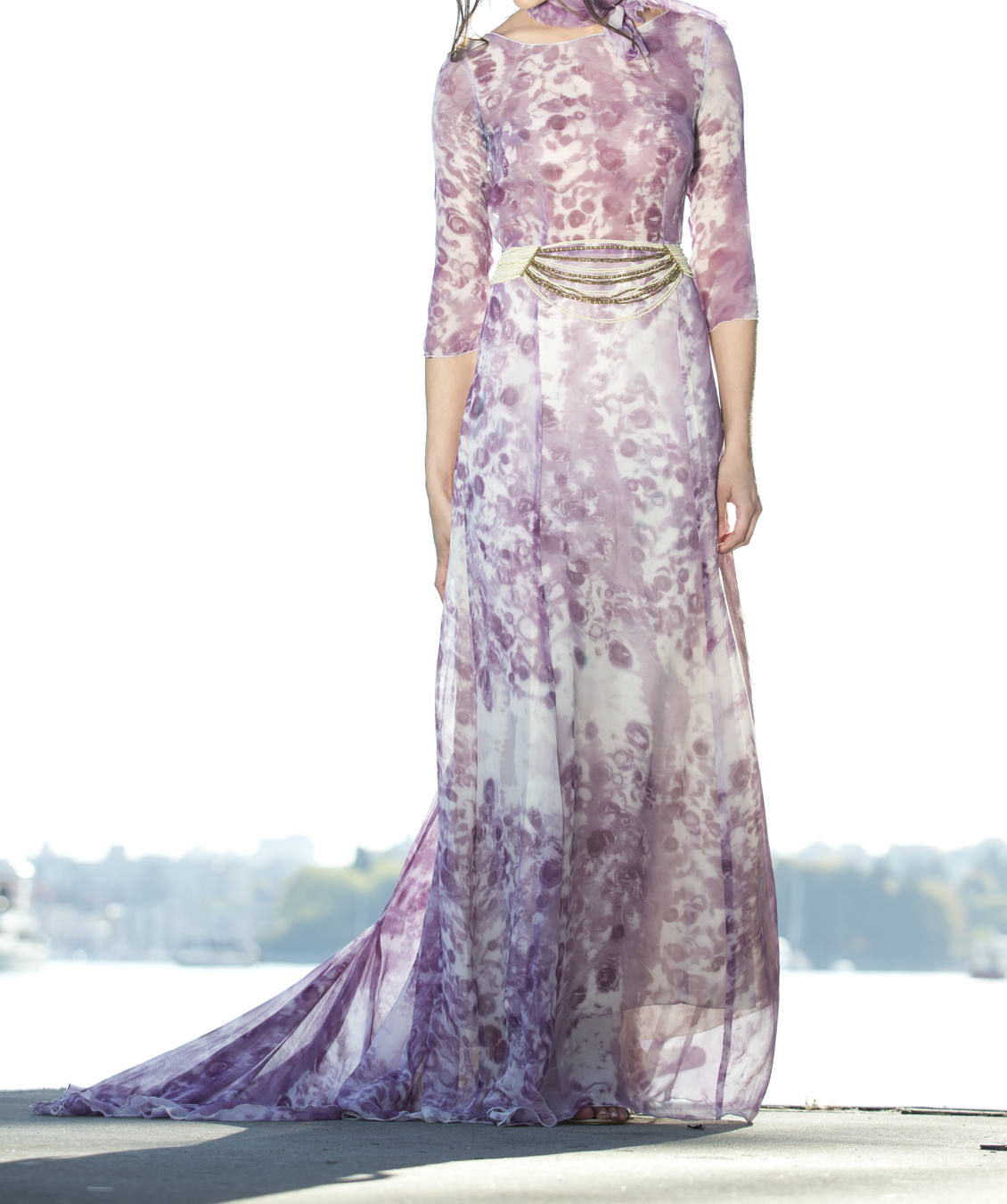
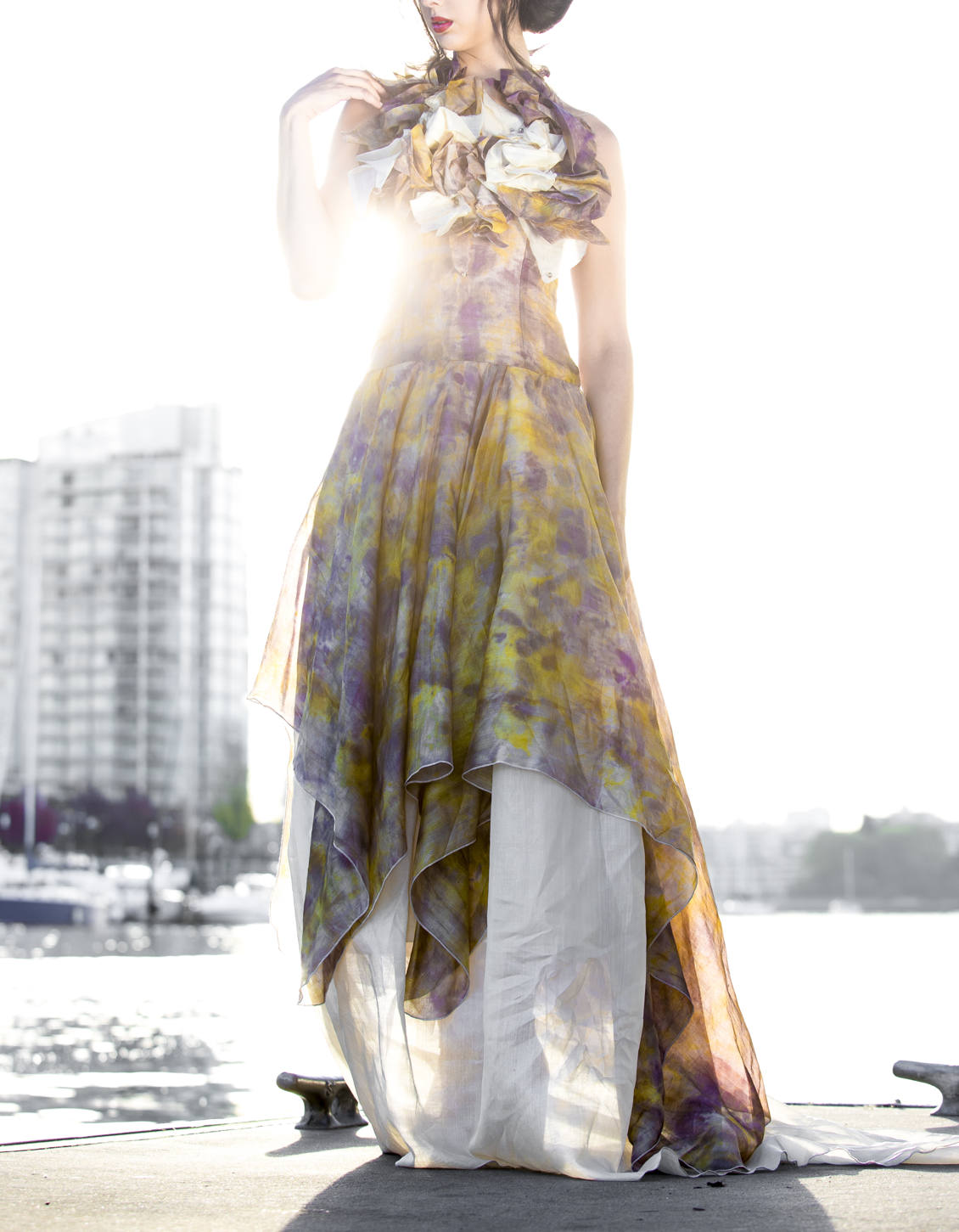
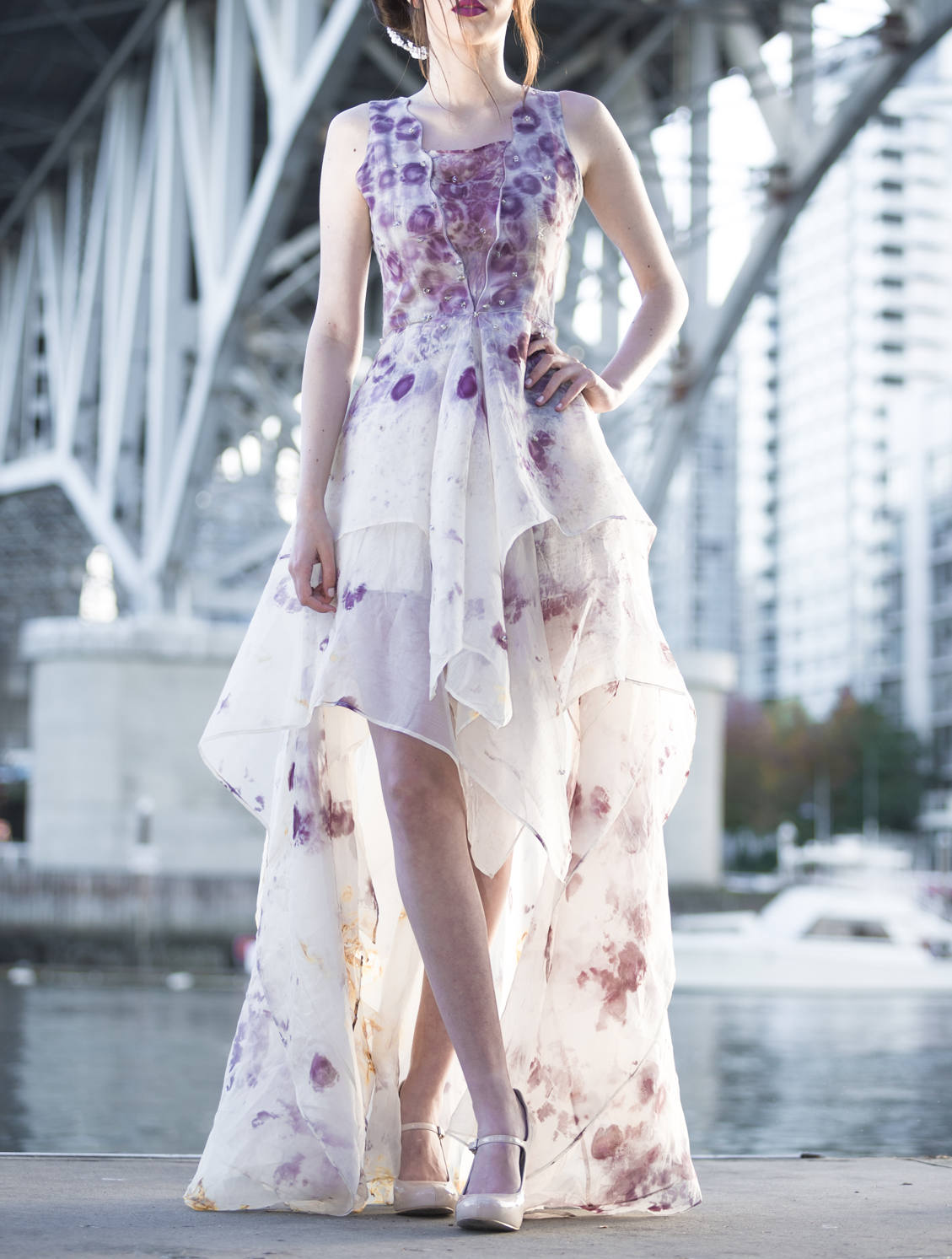
"Silent Rainforest Series'', dedicated to troubled world rainforests. Print work created by hand with purple carrots, forest berries and spices like turmeric. Photo © Simon Armstrong.
When “no” is a “yes”
But, how was the beginning, how did Zuhal start all this dream? “Being an eco fashion designer in a small city as Perth was hard when I started, five years ago. Twice, the local fashion festival event in Perth reject my aplication to participate there as a local designer. So, I decided to go abroad, to show my work in other international runways. I traveled to London, Paris, Vancouver, US, Bejing, New Zealand… My aim was not just to growth with Green Embassy, my fashion label. I also wanted to set up a national Eco Fashion Week in Australia to support emerging Australian Eco Designers and to give them a well deserved springboard international level”.
“Eco Fashion Week Australia is 100% supported by Eco fashion Designers and local community of volunteers .Thanks to this event, no more Designers need to leave Australia to show their works any longer as I did with Green Embassy”.
Zuhal’s super heroes in the sustainable fashion World are those young, just starting eco fashion Designers who, despite to financial hardship, are working very hard day and night in ther studios –mostly bedrooms- with passion and with big dreams to save the World.
Yes, we know, important things are always difficult. But, what is the most difficult thing Zuhal finds working with eco fabrics and in an sustainable and ethic way? We ask her: “I grow my own organic alpaca fibre as an australian farmer, process, card, felt, hand span turn to yarn and suply GOTS Certified Cotton from Australian suppliers. My Merino wool comes direct from Organic Certified Merino Farms, located at South of Western Australia. I don’t have any issue for suppy . I employ only local Australian incredibly skilled seamstresses. Green Embassy is made in Australia and licancee to Australian made logo. It will never will be produced off shore or in a factory”.
To Zuhal, mass production regardless to enviromental and ethical impacts. “The worst of the current fashion system is fast fashion is changing deliberatly markets and targets, provoking terrible consumerism, ruthless destruction of environment and shattering the future of the planet”.
She still does remember how her primary school friends did not have the chance to go further in the school in Turkey because of poverty. “They end up start working at the age of 8-9 at fashion factories with their mothers, producing for European Fashion labels. They are the one who showed me how to bead with little fingers to make clothes for our dolls. I hated fashion all my life and only loved my own sawn dresses, hand knitted wear, t-shirts, jeans… Moving to UK, Op-Shops provided great options when my life became very busy with full time teaching and family with two young kids. Until I started studying Visual Art at the University in UK, I never picked up any fashion magazine”.
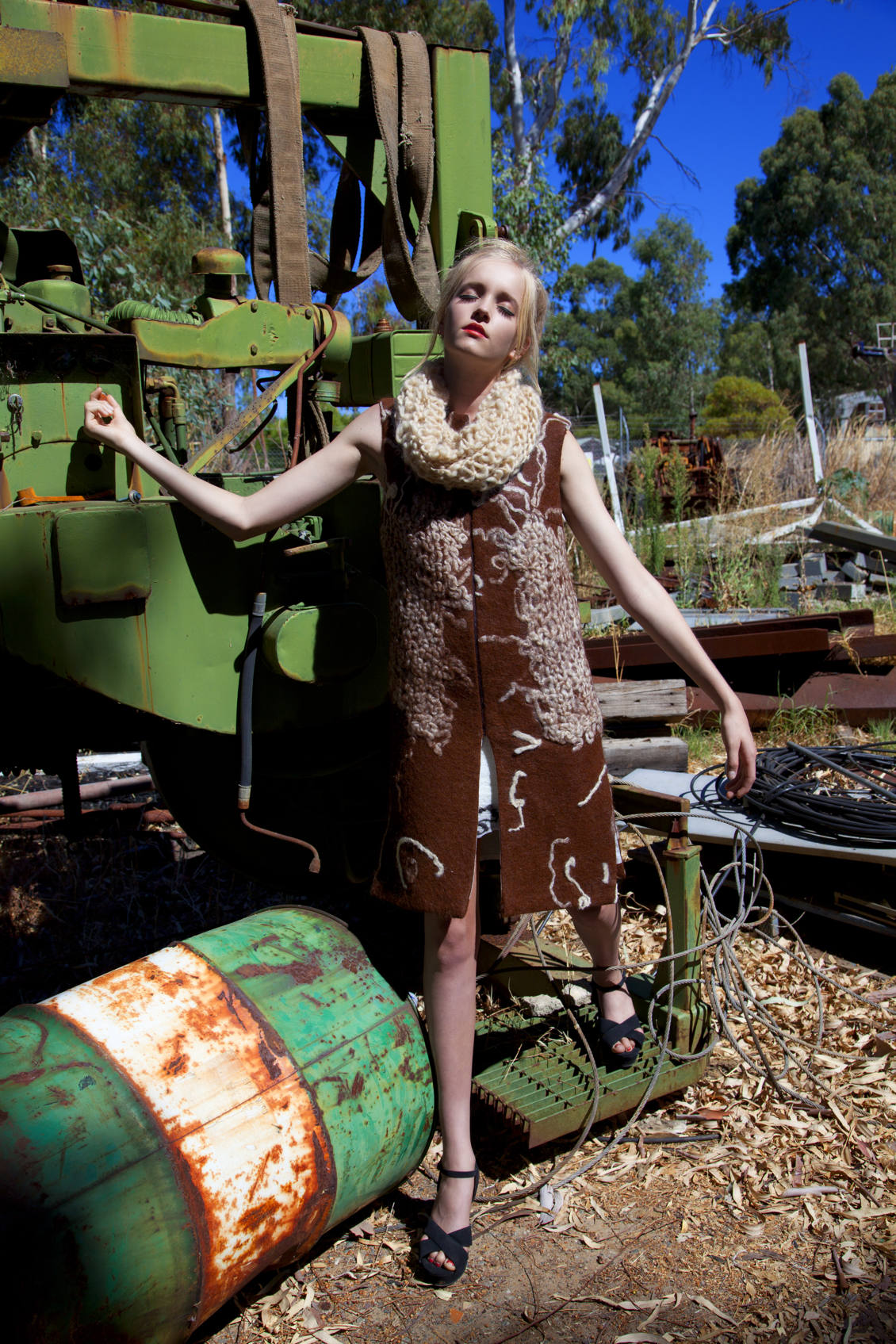
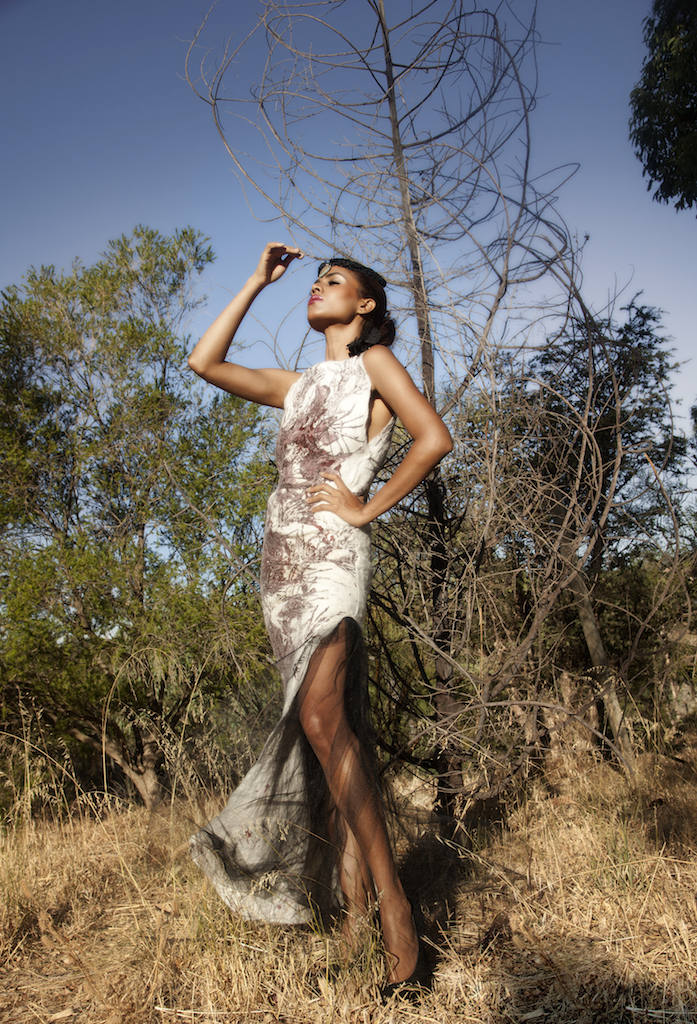
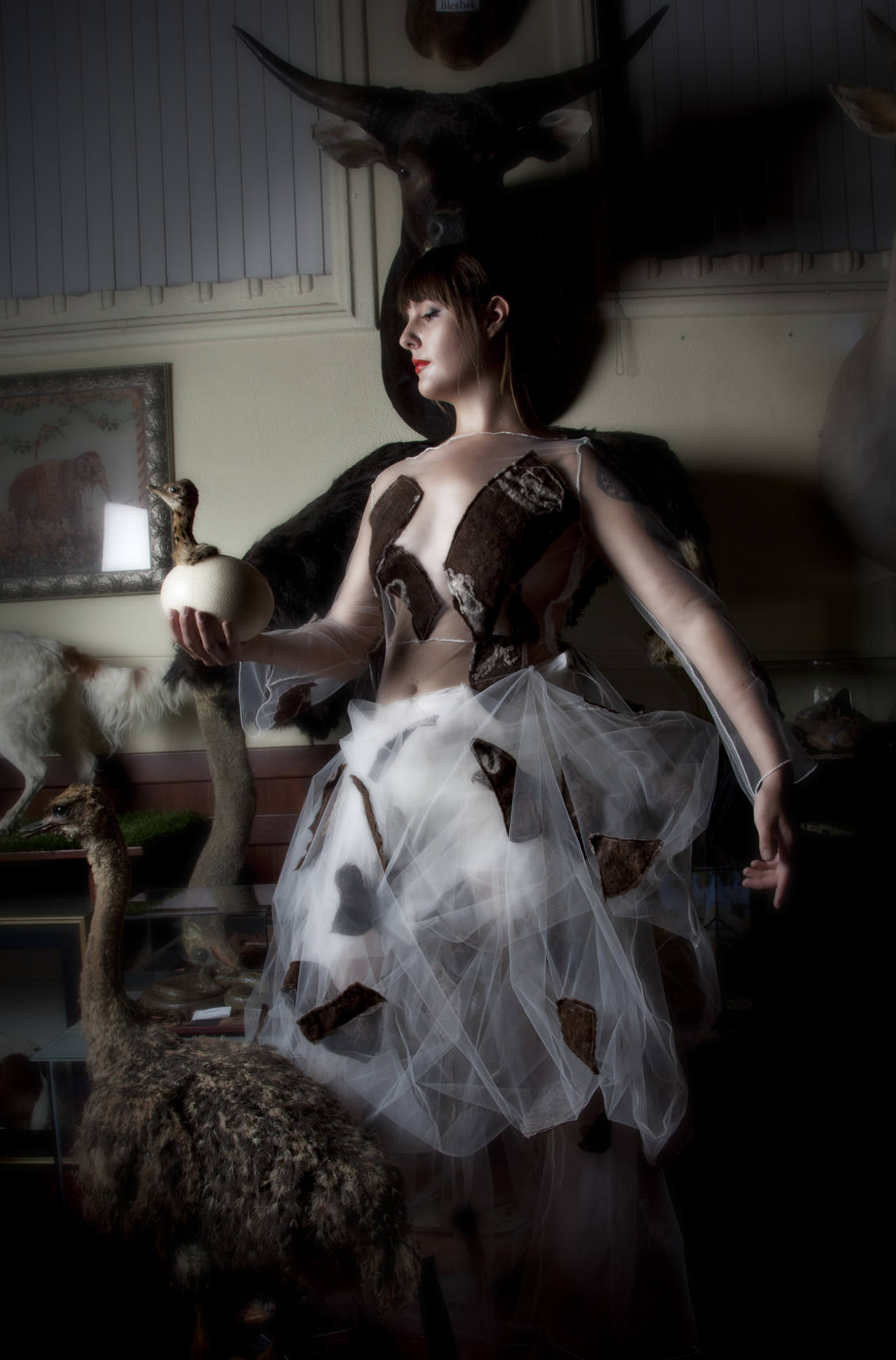
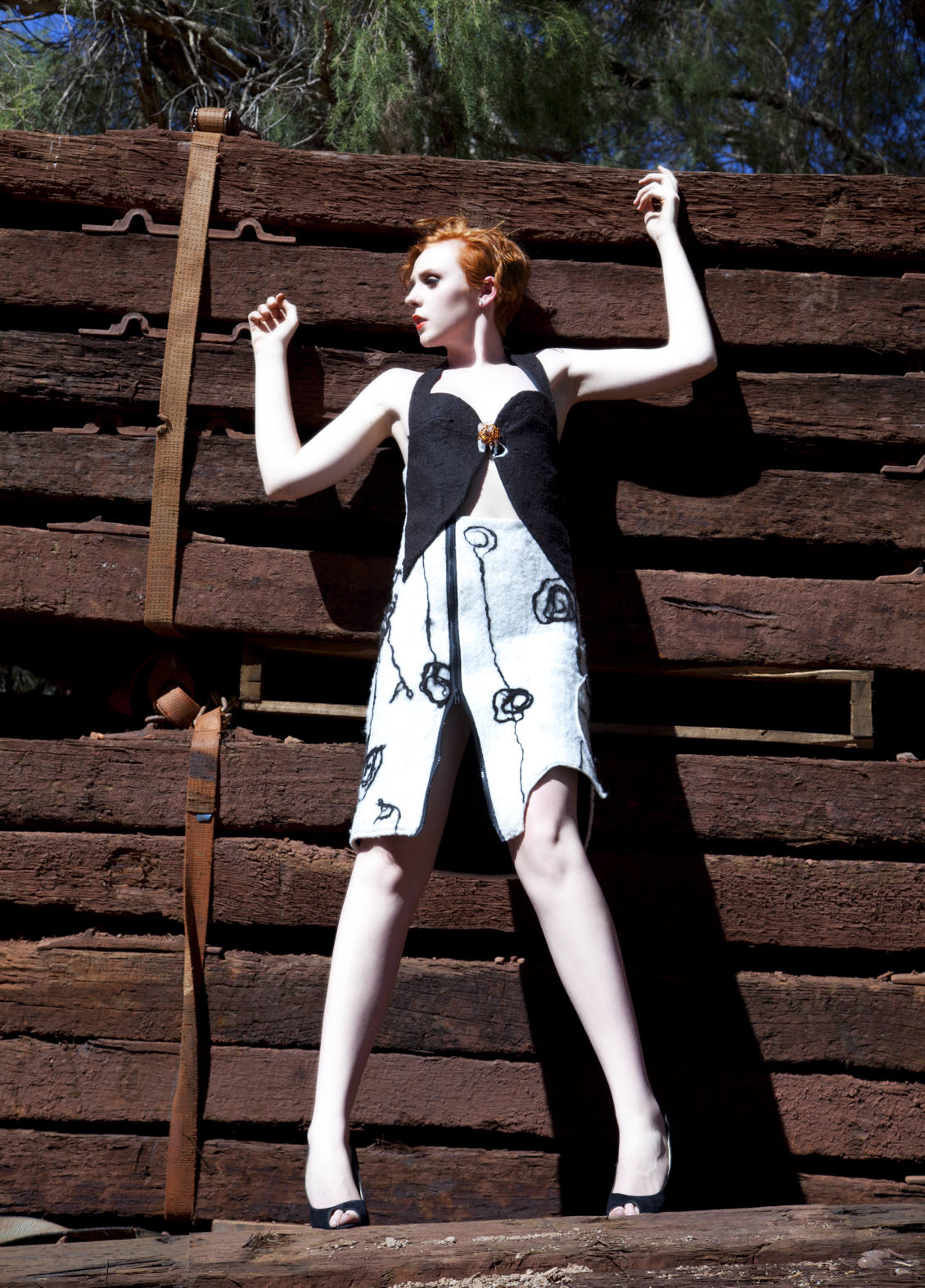
Early work with alpaca fibre. Photo © David Collins.
“Tidy up your closet first and discover you have already lots of stuff. If you are still thinking you need to buy, then visit all local Op-Shops in the area. If you have no luck and you decide to buy Fast fashion, check the garment: are the materials sustainable? What is the carbon footprints behind? Where is it made?"
"If the garment is too cheap, you may not be paying the real cost. Another women and young child in the third World may be paying it. About animals… ask which crulty involves. Think again. How long and how many times you will wear that garment?” - advices Zuhal.
To end our interview, she wants to give an advice to all those Designers working in ethical and ecological fashion: “Never, ever give up, it is hard to keep head over the water, you are compiting against a strong current call Fast fashion, but you will get there…”.
We are sure they will, for the future of fashion.

